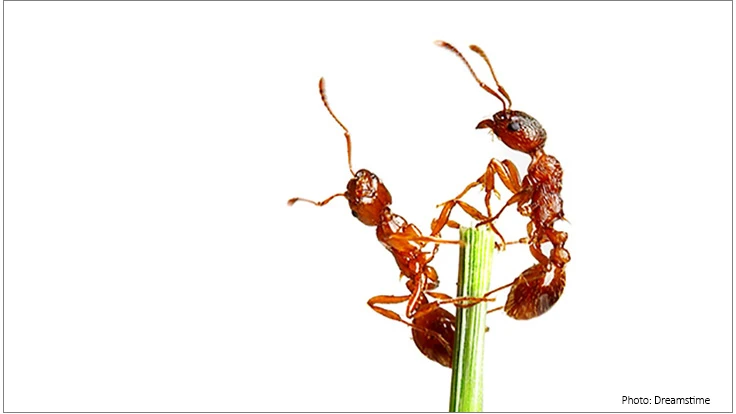
As humans, we constantly strive for a good work-life balance. New findings by researchers at Missouri S&T suggest that ants, long perceived as the workaholics of the insect world, do the same.
In fact, according to these researchers, it is imperative that some ants rest while others work to conserve food, energy and resources for the colony. And the larger the colony, the more important this work-rest balance becomes.
“It has been a long-standing question in the field as to why large colonies of ants use less per-capita energy than small colonies,” says Dr. Chen Hou, assistant professor of biological sciences at S&T and research team lead. “In this work, we found that this is because in large colonies, there are relatively more ‘lazy workers,’ who don’t move around, and therefore don’t consume energy.
“We found that the portion of inactive members of a group increases in a regular pattern with the group size,” Hou says.
The research team consistently observed that 60 percent of workers were not moving around in a 30-ant group, whereas this percentage increased to 80 percent when the group size increased to 300 ants.
“The simultaneous energetic measurements showed that the per capita energy consumption in the 300-ant group is only 50 percent of that in the 30-ant group,” Hou says.
By not consuming energy, these “lazy” ants are actually saving resources for the colony and making the colony more productive.
This realization could provide valuable insight into making our societies more productive and sustainable.
CLICK HERE to read more.
Source: Missouri S&T
Latest from Pest Control Technology
- Donny Oswalt Shares What Makes Termites a 'Tricky' Pest
- Study Finds Fecal Tests Can Reveal Active Termite Infestations
- Peachtree Pest Control Partners with Local Nonprofits to Fight Food Insecurity
- Allergy Technologies, PHA Expand ATAHC Complete Program to Protect 8,500 Homes
- Housecall Pro Hosts '25 Winter Summit Featuring Mike Rowe
- Advanced Education
- Spotted Lanternflies, BMSBs Most Problematic Invasive Pests, Poll Finds
- Ecolab Acquires Guardian Pest Solutions





